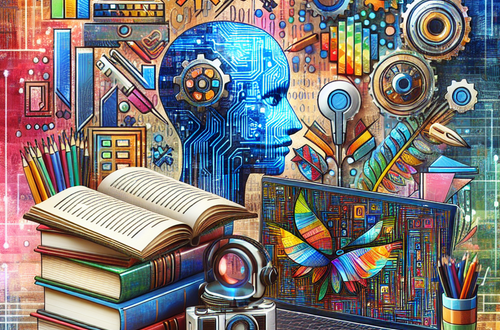Mastering Quantum Machine Learning
Introduction to Quantum Machine Learning
Quantum Machine Learning (QML) is one of the most exciting fields at the intersection of quantum computing and artificial intelligence. QML aims to leverage the power of quantum mechanics to enhance the capabilities of machine learning models. As quantum computers evolve, they promise more efficient processing capabilities, which can significantly impact AI and ML fields.
Prerequisites
- Basic understanding of quantum computing concepts.
- Familiarity with machine learning fundamentals.
- Interest in cutting-edge technology and research.
Understanding Core Principles
Quantum Superposition
Superposition allows quantum computers to process vast amounts of data simultaneously, unlike classical computers. This capability could drastically improve the efficiency of machine learning algorithms.
Quantum Entanglement
Quantum entanglement enables qubits to be interconnected in ways that classical bits cannot, potentially improving the speed and complexity of machine learning models. For further reading, check out our detailed guide on quantum advancements.
Implementing Quantum Machine Learning Algorithms
Qubit-based Models
Qubit-based models take advantage of quantum superposition and entanglement to process data in parallel streams. These models can solve complex problems more efficiently.
Hybrid Quantum-Classical Models
By combining quantum and classical models, researchers can leverage the strengths of both paradigms. These hybrid models are currently being explored to optimize specific tasks within the machine learning domain. Learn about a similar concept with our quantum AI FAQ.
Challenges and Opportunities
Scalability
As quantum computers continue to develop, their scaling potential remains one of the critical challenges. Current quantum machines can only handle limited qubit numbers effectively.
Research and Development
Active research is exploring various algorithms and methods to better integrate quantum computing with machine learning, opening new frontiers for AI applications.
Conclusion and Future Prospects
Quantum Machine Learning holds massive potential to transform traditional AI methodologies. Researchers and developers must stay informed about the latest trends and advancements in quantum computing to leverage its capabilities fully.
For further exploration on related topics, visit Wikipedia’s Quantum Machine Learning (Official Site).
Summary Checklist
- Understanding superposition and entanglement.
- Recognizing the benefits of hybrid quantum-classical models.
- Staying updated with ongoing research challenges.






